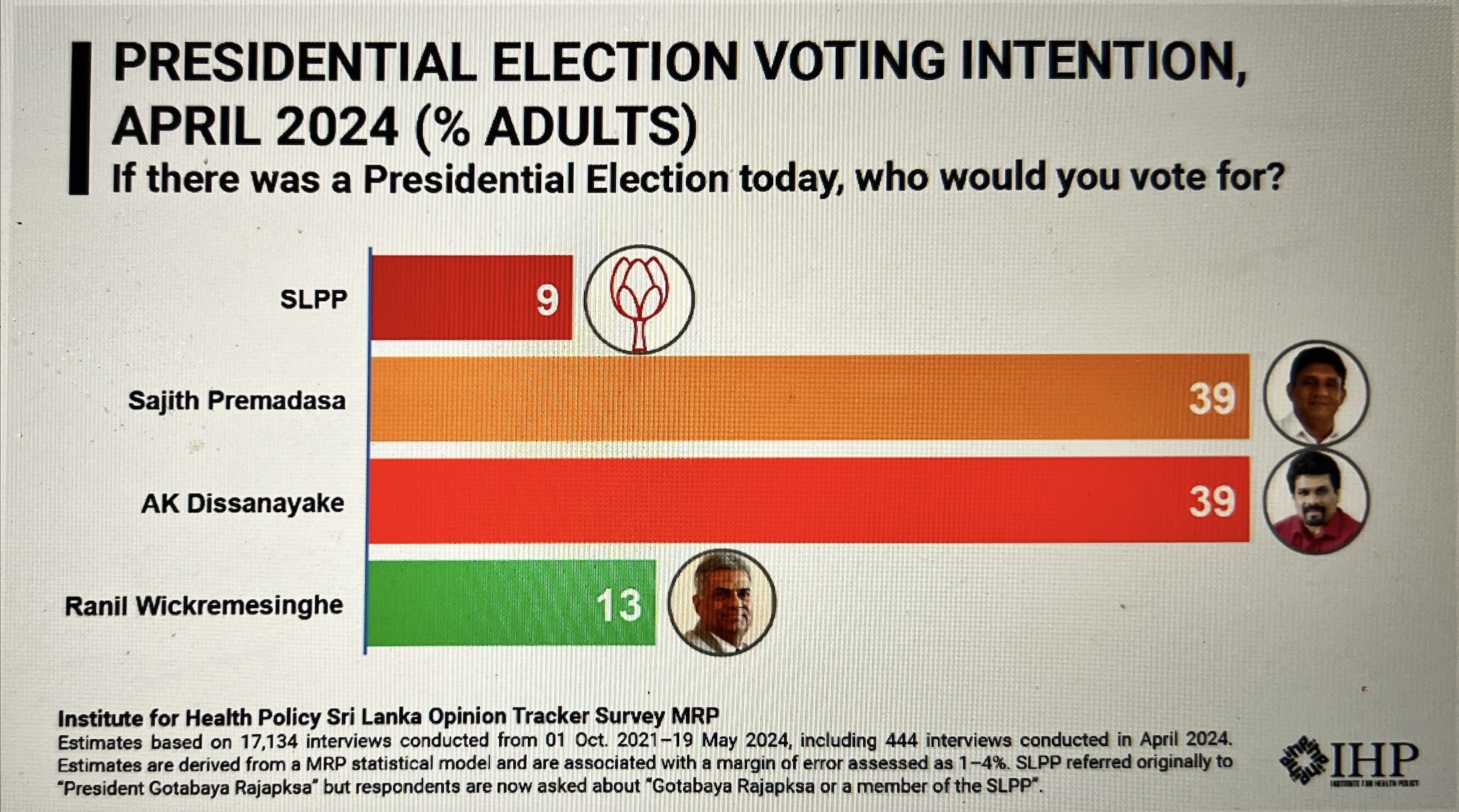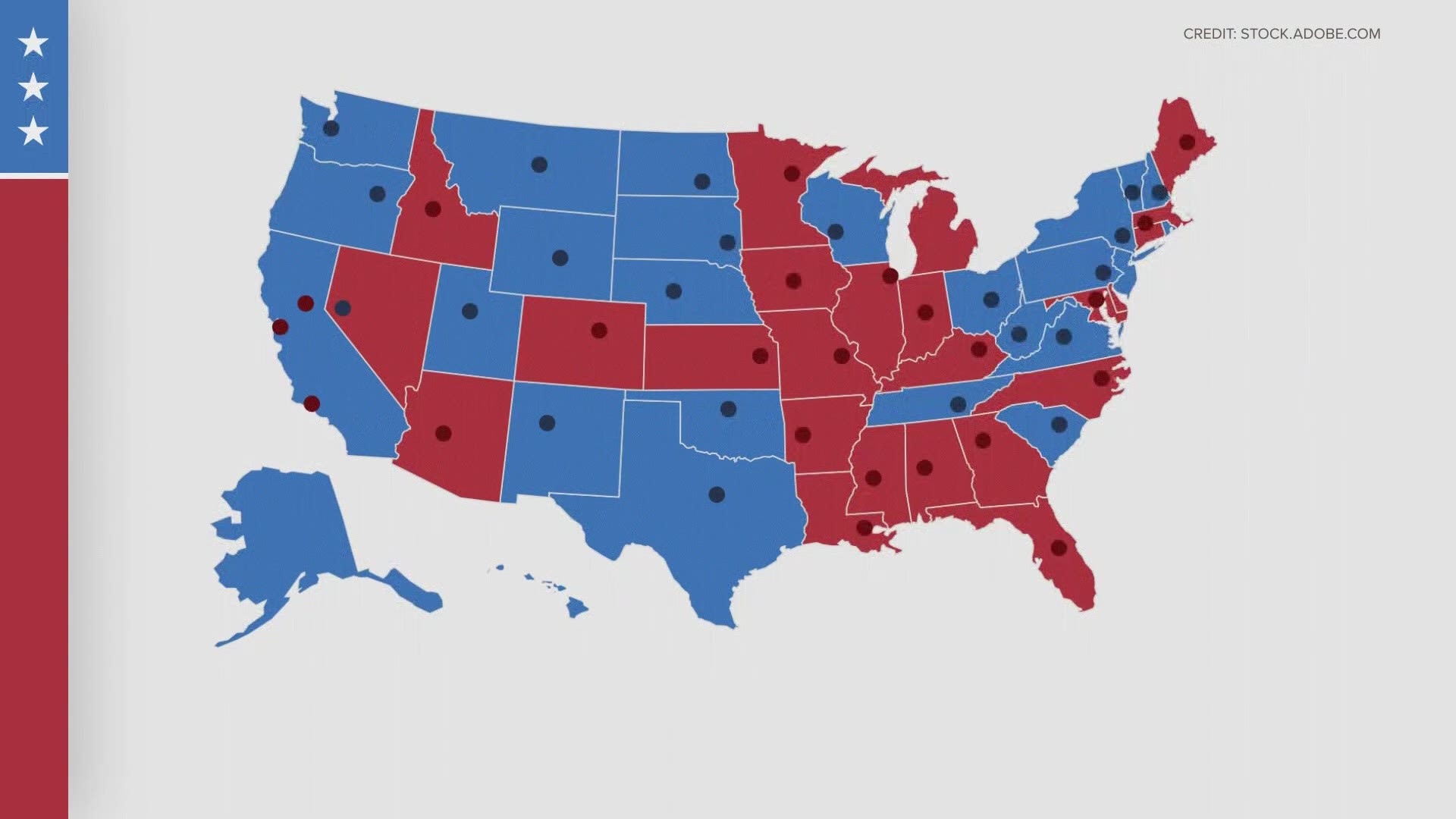What Happens If A Candidate Doesn't Get 270 Electoral Votes? The Ultimate Guide
So, here's the deal—what happens if a candidate doesn't get 270 electoral votes? This is the golden number in U.S. presidential elections, and without it, things can get pretty messy. Let’s dive right into it because this isn’t just about numbers; it’s about the future of the country, folks.
Picture this: Election Day has come and gone, but no candidate hits the magic 270 electoral votes. Yeah, that’s right—it’s possible. The U.S. Constitution sets the rules, and if no one reaches the required threshold, the process shifts into overdrive. But how does it work? Stick around, and we’ll break it down for you in simple terms.
This topic isn’t just for political junkies or history buffs. It’s for everyone who wants to know what happens when the electoral system doesn’t go as planned. Trust me, it’s more common than you think, and understanding it can give you some serious street cred in your next political debate.
- Shark Attack Indonesia The Untold Stories And How To Stay Safe
- Beis Luggage Your Ultimate Travel Companion Thats Stylish Durable And Affordable
Understanding the Electoral College
Why 270 Electoral Votes Are Crucial
First things first, the Electoral College is like the referee in this whole election game. Each state gets a certain number of electoral votes based on its population. To win the presidency, a candidate needs to secure 270 out of 538 total electoral votes. If they don’t, well, let’s just say it’s game time for the House of Representatives.
Here’s the kicker: the Electoral College isn’t just a number; it’s a system designed to balance power between smaller and larger states. It ensures that candidates can’t just focus on big cities and ignore rural areas. Cool, right? But what happens if no one hits the target? Let’s find out.
What Happens If No Candidate Gets 270?
The Role of the House of Representatives
If no candidate secures 270 electoral votes, the House of Representatives steps in. This is where things get interesting. Each state delegation gets one vote, and they choose from the top three candidates who received the most electoral votes. Yeah, you read that right—one vote per state.
- Valentina Lima The Rising Star Whorsquos Capturing Hearts Worldwide
- Brittany Murphy Died Unveiling The Truth Behind The Tragic Loss
This process has only happened twice in U.S. history: in 1800 and 1824. Both times, the House had to make some tough decisions. In 1800, Thomas Jefferson and Aaron Burr tied, and in 1824, none of the candidates hit the 270 mark. Crazy, right?
How the Senate Gets Involved
Selecting the Vice President
While the House is busy picking the president, the Senate has its own job to do. They get to choose the vice president from the top two candidates who received the most electoral votes. Each senator gets one vote, and they need a simple majority to decide. Simple, right? Well, not exactly.
Imagine a situation where the House can’t agree on a president, and the Senate can’t agree on a vice president. That’s where the Speaker of the House steps in as acting president until things get sorted out. Sounds like a political drama waiting to happen!
Historical Precedents and Lessons Learned
When the Electoral College Failed Before
Let’s take a trip down memory lane and look at the historical precedents. In 1800, Thomas Jefferson and Aaron Burr tied with 73 electoral votes each. The House had to vote 36 times before finally choosing Jefferson as president. Talk about a nail-biter!
Then there’s the 1824 election, where none of the candidates hit the 270 mark. The House chose John Quincy Adams as president, even though Andrew Jackson had won the popular vote. This led to a lot of controversy and changed the way campaigns were run in the future.
The Importance of the Popular Vote
Does the Popular Vote Matter?
Here’s the million-dollar question: Does the popular vote matter if no candidate gets 270 electoral votes? The short answer is no, not directly. The Electoral College decides the winner, but the popular vote can influence how the House and Senate vote. It’s like a guidepost for them to follow.
In recent elections, we’ve seen candidates win the presidency without winning the popular vote. This has sparked a lot of debate about whether the Electoral College is still relevant in today’s political climate. It’s a conversation that’s not going away anytime soon.
What Happens Next?
The Contingency Plan
So, what happens next if no candidate gets 270 electoral votes? The House and Senate go to work, and the process can take weeks or even months. During this time, the current president remains in office until the new president is chosen. It’s a delicate balance, and one wrong move can have serious consequences.
Imagine the chaos if the House and Senate can’t agree. The Speaker of the House steps in as acting president, but that’s not a long-term solution. This is why the Electoral College system is so important—it ensures a smooth transition of power, even if things don’t go as planned.
The Impact on Future Elections
How This Affects Future Campaigns
When no candidate gets 270 electoral votes, it has a ripple effect on future elections. Candidates have to rethink their strategies and focus on winning key states. It also highlights the need for electoral reform, as more and more people question the fairness of the system.
Some argue that the Electoral College should be abolished altogether, while others believe it’s still the best way to ensure a balanced representation of all states. It’s a debate that will continue for years to come, and the outcome will shape the future of American politics.
Common Misconceptions About the Electoral College
Busting the Myths
There are a lot of misconceptions about the Electoral College, and it’s time to set the record straight. First, the Electoral College isn’t a physical place; it’s a system. Second, the electors aren’t bound to vote for the candidate who won their state, although most do. And finally, the popular vote doesn’t directly decide the winner.
These myths can lead to confusion and misinformation, so it’s important to understand how the system really works. By educating ourselves and others, we can make informed decisions and participate in meaningful discussions about the future of our democracy.
The Role of the American People
Why Your Vote Matters
Even if the Electoral College decides the winner, your vote still matters. It influences how the electors vote and can sway the decision of the House and Senate. Every vote counts, and your voice can make a difference.
So, the next time someone tells you your vote doesn’t matter, remind them of the power of the people. It’s not just about electing a president; it’s about shaping the future of our country. And that’s something worth fighting for.
Conclusion: What Happens If a Candidate Doesn't Get 270 Electoral Votes?
Let’s wrap things up, shall we? If no candidate gets 270 electoral votes, the House of Representatives steps in to choose the president, and the Senate picks the vice president. It’s a process that’s been in place for over 200 years, and while it’s not perfect, it works.
But here’s the thing: your voice matters. Whether it’s through voting, volunteering, or simply staying informed, you have the power to shape the future of our democracy. So, don’t sit on the sidelines—get involved and make a difference.
And remember, if you have any questions or comments, feel free to drop them below. We’d love to hear from you and continue the conversation. Until next time, stay curious and keep learning!
Table of Contents
- Understanding the Electoral College
- What Happens If No Candidate Gets 270?
- How the Senate Gets Involved
- Historical Precedents and Lessons Learned
- The Importance of the Popular Vote
- What Happens Next?
- The Impact on Future Elections
- Common Misconceptions About the Electoral College
- The Role of the American People
- Conclusion



Detail Author:
- Name : Adriel Reynolds
- Username : obie.grant
- Email : ryundt@gmail.com
- Birthdate : 1980-11-07
- Address : 1037 Paucek Corner South Ladariusland, TN 70145
- Phone : (470) 468-6576
- Company : Hettinger PLC
- Job : Distribution Manager
- Bio : Saepe eveniet sunt voluptatibus dolorem voluptatum aut. Est minus praesentium autem in. Officiis eos vel a ea.
Socials
twitter:
- url : https://twitter.com/weberb
- username : weberb
- bio : Laboriosam corporis cupiditate mollitia corporis odio. Iusto fugiat esse mollitia. Quisquam officiis dolorum doloribus. At voluptas nihil eum temporibus et.
- followers : 6070
- following : 2877
linkedin:
- url : https://linkedin.com/in/weber1979
- username : weber1979
- bio : Quaerat rerum et earum dolore repellat ut.
- followers : 1426
- following : 2078
instagram:
- url : https://instagram.com/bertrandweber
- username : bertrandweber
- bio : Itaque culpa voluptates temporibus qui consequatur. Earum facilis harum quos nulla tempore aliquam.
- followers : 6250
- following : 1532
facebook:
- url : https://facebook.com/bertrand_id
- username : bertrand_id
- bio : Ducimus est dolor beatae deleniti.
- followers : 3290
- following : 1976